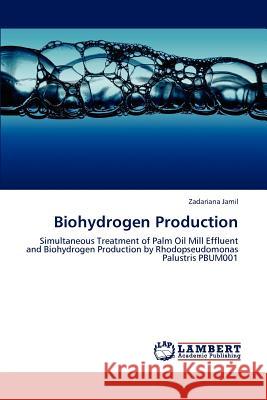Biohydrogen Production » książka
Biohydrogen Production
ISBN-13: 9783848496877 / Angielski / Miękka / 2012 / 108 str.
Phototrophic hydrogen production by indigenous purple non sulfur bacteria, Rhodopseudomonas palustris PBUM001 from palm oil mill effluent (POME) was optimized using response surface methodology (RSM). The process parameters studied include inoculum sizes (% (v/v)), POME concentration (% (v/v)), light intensity (klux), agitation (rpm) and pH. The experimental data on cumulative hydrogen production and COD reduction were fitted into a quadratic polynomial model using response surface regression analysis. The path to optimal process conditions were determined by analyzing response surface three-dimensional surface plot and contour plot. Statistical analysis on experimental data collected following Box-Behnken design showed that 100% (v/v) POME concentration, 10% (v/v) inoculum, light intensity at 4.0 klux, agitation rate at 250 rpm and pH of 6 were the best conditions. The maximum predicted cumulative hydrogen production and COD reduction obtained under these conditions was 1.05 mL H2/mL POME and 31.71% respectively. Further scaling up was done at the optimum conditions in 5 L stirred tank reactor (STR) with working volume of 3.5 L.











